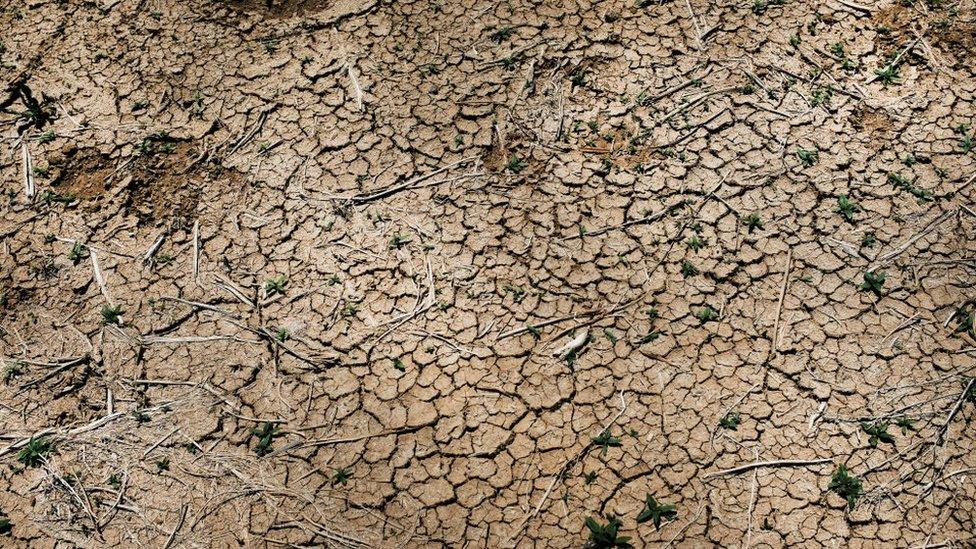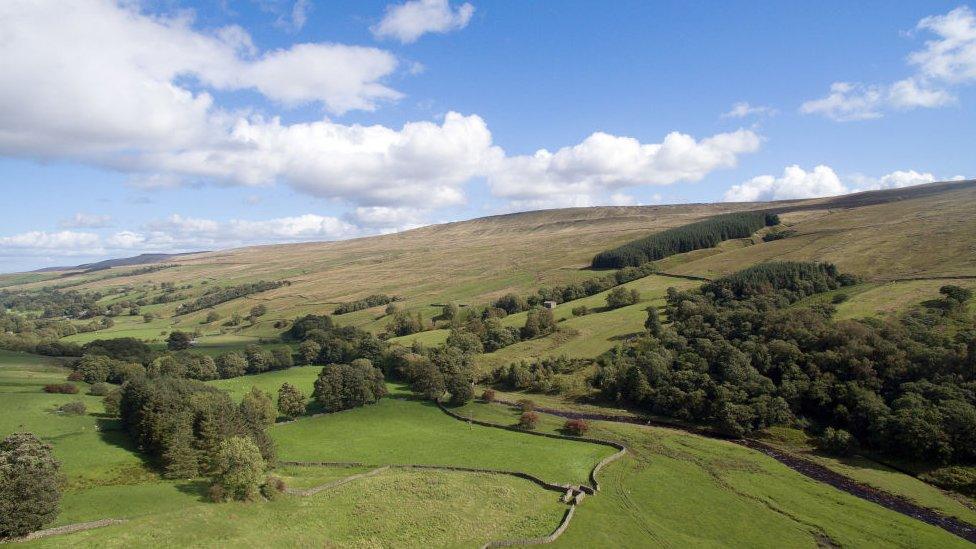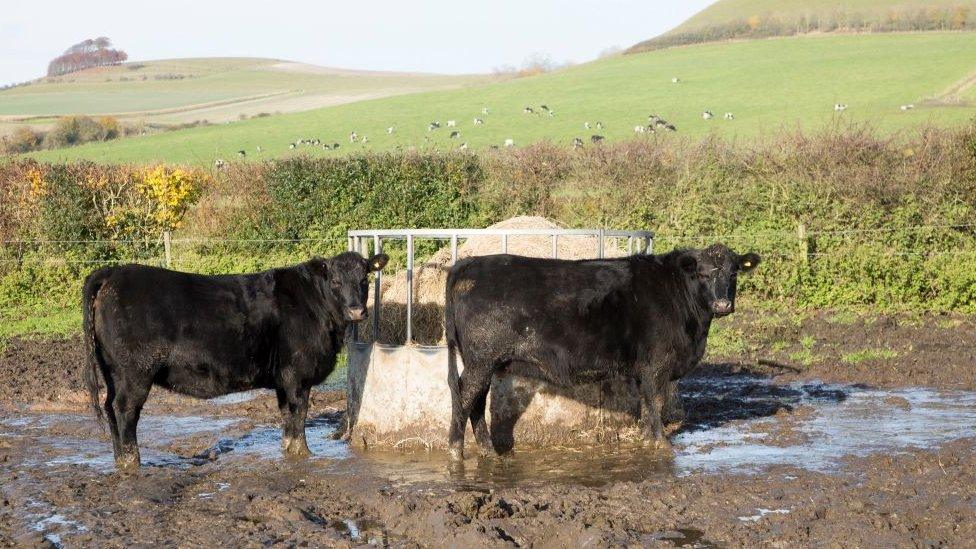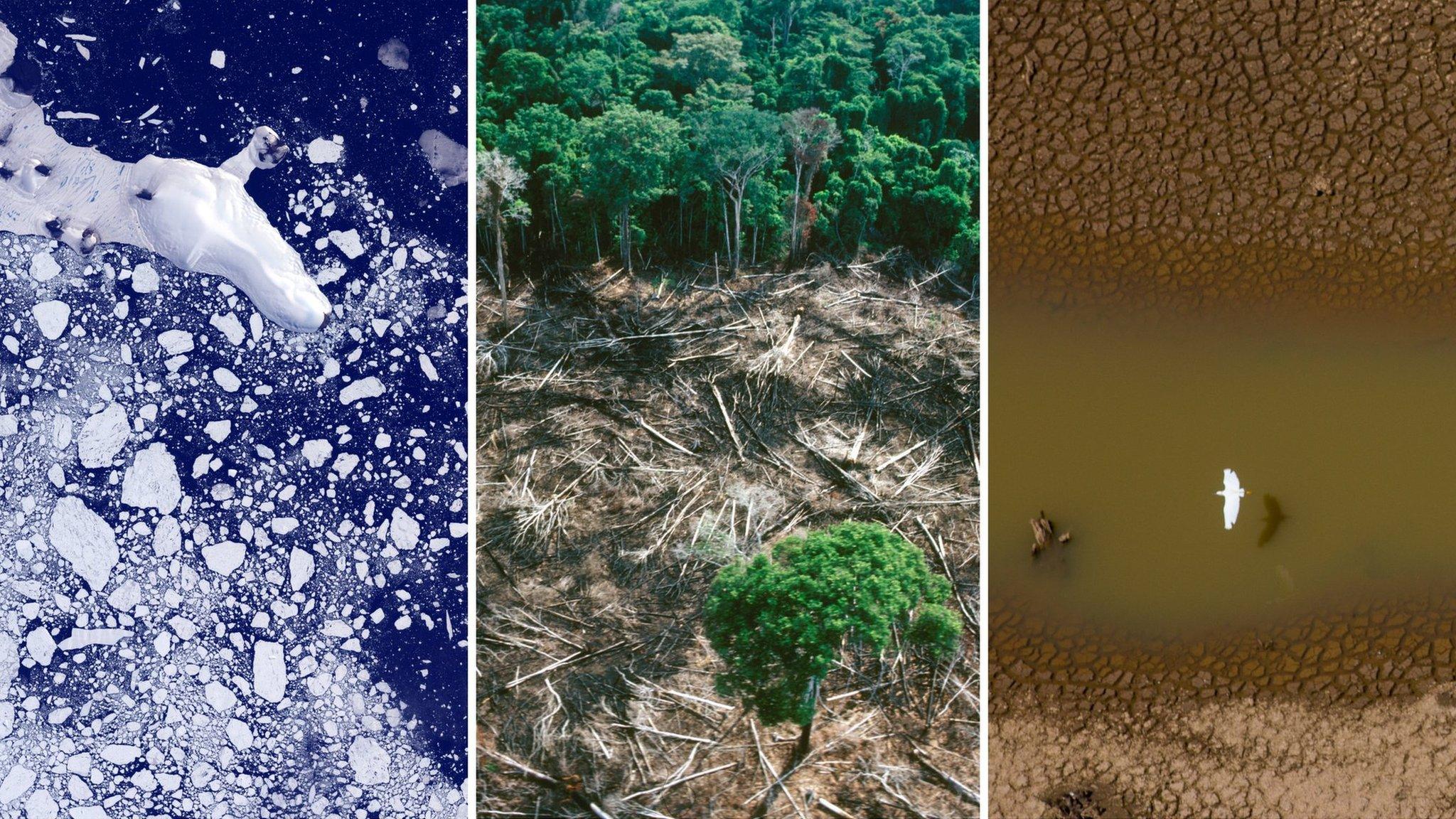Climate change conference: We need to change how we use land
- Published
- comments

Humans must change how we are using the land in order to tackle climate change, warn scientists.
At the moment, how we use land is actually contributing to climate change, when - if used in the right way - land can actually help to tackle the problem.
The message comes from the Intergovernmental Panel on Climate Change (IPCC) - a United Nations group that looks at the science related to climate change - after a special meeting in Geneva in Switzerland to discuss what changes we need to make to protect the planet from further damage.
Read on to find out more about what the experts are saying.
What is the problem?
Human activities have led to damaged soils, expanded deserts, cut-down forests, drained peat lands and even to wildlife being driven out, according to IPCC scientists.
Through these processes - and how humans farm land and grow timber - land has now become a major source of carbon, which is a factor causing global warming.
In their natural state, peat bogs are saturated with water. Many farmers have drained them because the soil there is very rich, but when peat is exposed to the air, it oxidises and produces CO2.
Usually, land that hasn't been affected by the processes above can help to fight against climate change. It does this through being covered with plants which absorb warming CO2 gas from the air and fix it in the soil.
But now, experts warn that between one-quarter and one-third of all greenhouse gas emissions are estimated to come from how we use the land.

What do scientists say we should do?
The experts say that we need to make hard choices about how we use the world's soil going forward.
They believe we need to:
Protect as much natural forest as we can, particularly in the tropics
Change diets to eat less red meat and more vegetables
Protect peat lands and restore them where possible
Grow plants and trees to produce energy - but only on a small local scale
Do more agro-forestry, in which food crops are mixed in with trees
Improve crop varieties
What are the challenges?
There are several challenges when it comes to tackling the problem.
Competition for the land - Different companies and farmers all want land for different uses, so there's competition for the land that is available
Millions of farmers would have to learn new farming techniques - It will be difficult for farmers to learn and implement new farming methods, especially in poorer areas where farmers may not be able to afford new training and technology
Businesses may need to change how they operate
Consumers want the products - Consumption of meat and vegetable oils has doubled since the 1960s, putting a huge stress on the land to produce these
"I hope the final IPCC report will be robust enough to motivate politicians and land managers to implement policies and practices that will reverse, mitigate and adapt to the climate crisis," said Professor Jane Rickson from Cranfield University.

- Published20 January 2020

- Published8 May 2019

- Published26 May 2019

